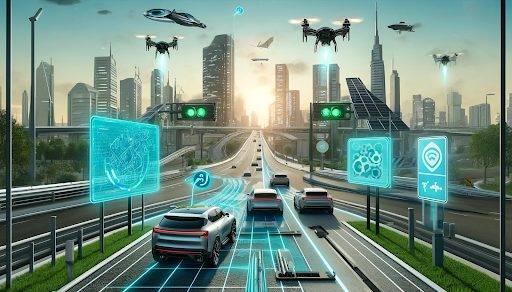The automotive industry is undergoing a transformative journey, driven by remarkable business and technological innovations. These advancements are not only redefining how vehicles are manufactured and operated but are also paving the way for a more sustainable and efficient future. For business enthusiasts, understanding these innovations is crucial as they offer a glimpse into the future of mobility and the opportunities that come with it.

Electric Vehicles (EVs)
Electric vehicles have surged in popularity, marking a significant shift from traditional gasoline-powered cars. The global EV market is projected to grow at a CAGR of 21.7% from 2021 to 2030, reaching approximately 34 million units by 2030. Key players like Tesla, Nissan, and Chevrolet are at the forefront, continuously innovating to improve battery life, reduce costs, and enhance vehicle performance. Tesla’s Model 3, for instance, has set new standards for affordability and efficiency in the EV sector.
Autonomous Driving Technology
Autonomous driving technology is revolutionizing the way we perceive transportation. Companies such as Waymo, Tesla, and Uber are pioneering the development of self-driving cars. Waymo, a subsidiary of Alphabet Inc., has been leading the charge with its autonomous ride-hailing services in select cities. The technology leverages advanced sensors, AI, and machine learning to navigate roads safely and efficiently, promising a future where human error in driving is significantly minimized.
Connected Cars and IoT
The integration of the Internet of Things (IoT) in vehicles has given rise to connected cars, which offer numerous benefits such as enhanced safety, improved navigation, and seamless infotainment. Tesla, once again, is a standout with its over-the-air software updates, which allow the company to fix bugs, improve features, and even add new functionalities remotely. This innovation not only improves the user experience but also sets a new benchmark for automotive connectivity.
Artificial Intelligence and Machine Learning
Artificial Intelligence (AI) and Machine Learning (ML) are playing pivotal roles in the automotive industry’s evolution. These technologies are utilized in various aspects, including autonomous driving, predictive maintenance, and personalized user experiences. The adoption of AI in the automotive sector is expected to grow at a CAGR of 35% from 2020 to 2027. Companies like BMW and Audi are leveraging AI to enhance driving assistance systems, making vehicles smarter and safer.
Sustainable Manufacturing Practices
As environmental concerns rise, the automotive industry is adopting more sustainable manufacturing practices. Companies such as BMW are leading the way with initiatives like using recycled materials, reducing emissions in production processes, and investing in renewable energy. BMW’s iFactory, for example, focuses on digitalization, sustainability, and flexibility, aiming to create a more eco-friendly production environment.
Mobility-as-a-Service (MaaS)
Mobility-as-a-Service (MaaS) is an innovative approach that combines various forms of transportation services into a single accessible on-demand service. Companies like Uber, Lyft, and Zipcar are prominent players in this space, providing seamless urban mobility solutions. The MaaS market is projected to reach $230 billion by 2025, driven by the increasing demand for convenient and flexible transportation options.
3D Printing and Custom Manufacturing
3D printing technology is revolutionizing the automotive manufacturing process by enabling custom manufacturing and reducing production costs. Local Motors, a pioneering company in this space, has created the world’s first 3D-printed car, the Strati. This innovation not only reduces the time and cost associated with traditional manufacturing methods but also allows for greater design flexibility and customization.
Augmented Reality (AR) and Virtual Reality (VR)
Augmented Reality (AR) and Virtual Reality (VR) are transforming various aspects of the automotive industry, from design and manufacturing to sales and customer experiences. Audi, for instance, uses VR to provide potential customers with immersive experiences of their vehicles, enhancing the buying process. These technologies also aid in designing complex components and training assembly line workers, improving efficiency and accuracy.
Blockchain Technology
Blockchain technology is making significant inroads into the automotive industry by enhancing security, transparency, and efficiency. It is used in supply chain management to track parts and ensure authenticity, as well as in vehicle data management to maintain secure records of vehicle history. The adoption of blockchain in the automotive sector is expected to grow at a CAGR of 31.19% from 2020 to 2027, highlighting its increasing importance.
Conclusion
The automotive industry is at the cusp of a technological revolution, driven by innovations that promise to reshape the future of mobility. From electric vehicles and autonomous driving to AI, IoT, and blockchain, these advancements offer immense potential for growth and development. As business enthusiasts, staying informed about these trends is crucial to understanding the evolving landscape and seizing the opportunities it presents.
HedgeThink.com is the fund industry’s leading news, research and analysis source for individual and institutional accredited investors and professionals





























